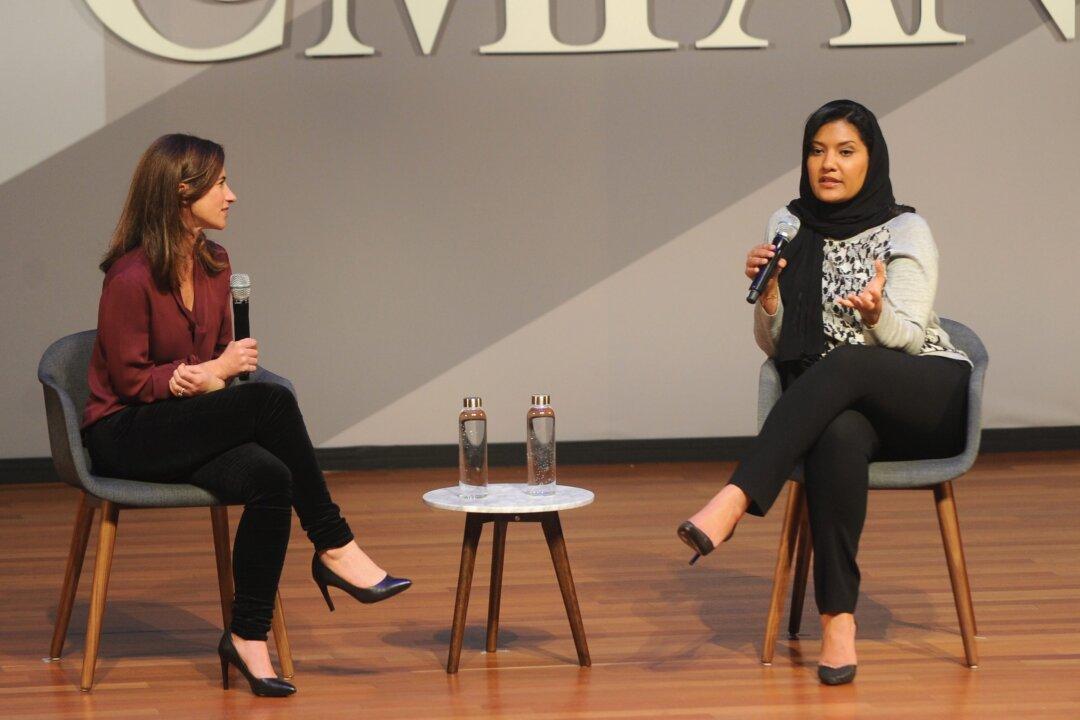DUBAI, United Arab Emirates—Saudi Arabia appointed its first female ambassador early Feb. 24 to serve as its top diplomat in the United States, pulling a son of King Salman back to the kingdom to serve as deputy defense minister.
Princess Reema bint Bandar Al Saud, a daughter of the kingdom’s longtime ambassador to Washington Bandar bin Sultan Al Saud, replaces Prince Khalid bin Salman Al Saud, a son of King Salman and a former fighter pilot.





